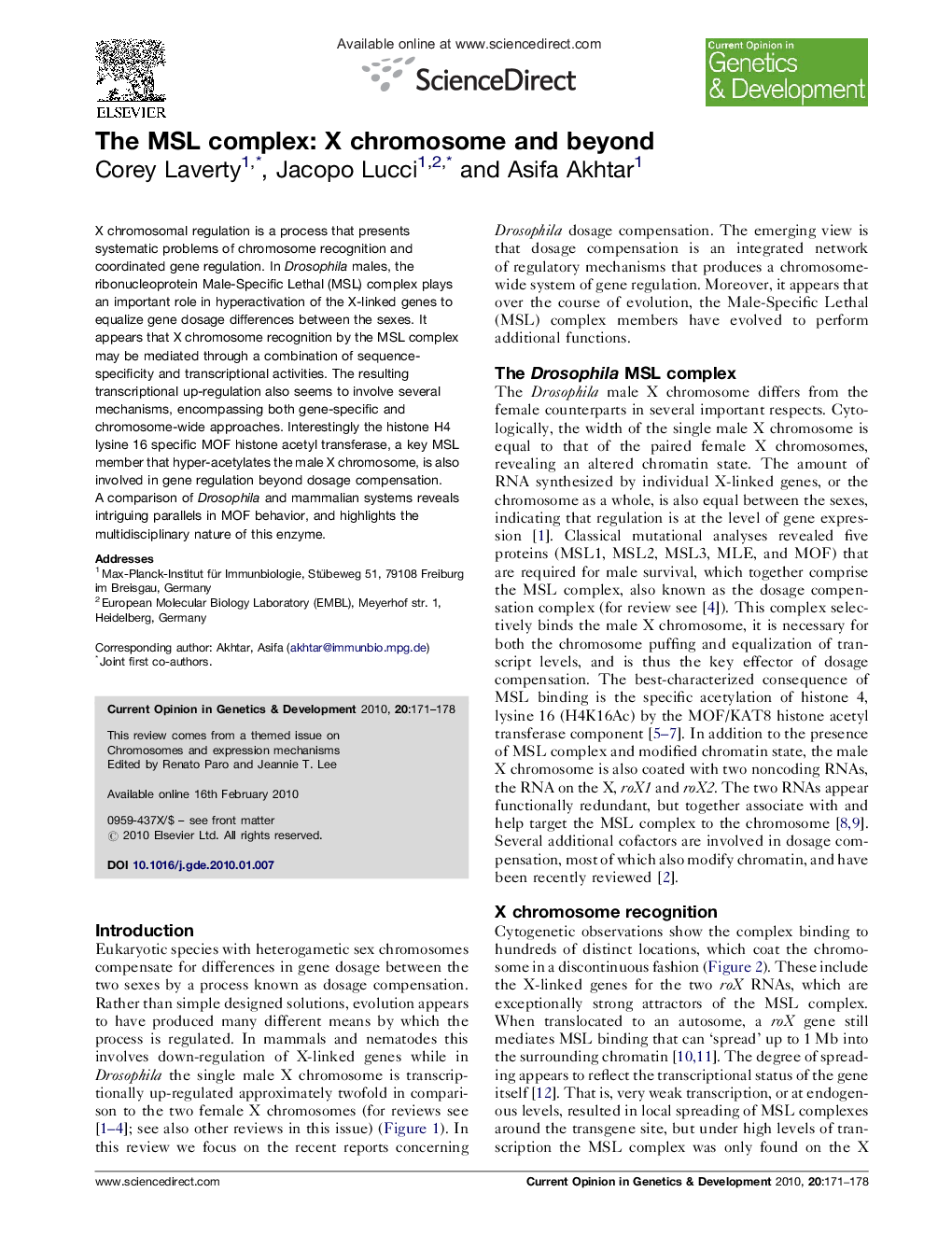| Article ID | Journal | Published Year | Pages | File Type |
|---|---|---|---|---|
| 2785196 | Current Opinion in Genetics & Development | 2010 | 8 Pages |
X chromosomal regulation is a process that presents systematic problems of chromosome recognition and coordinated gene regulation. In Drosophila males, the ribonucleoprotein Male-Specific Lethal (MSL) complex plays an important role in hyperactivation of the X-linked genes to equalize gene dosage differences between the sexes. It appears that X chromosome recognition by the MSL complex may be mediated through a combination of sequence-specificity and transcriptional activities. The resulting transcriptional up-regulation also seems to involve several mechanisms, encompassing both gene-specific and chromosome-wide approaches. Interestingly the histone H4 lysine 16 specific MOF histone acetyl transferase, a key MSL member that hyper-acetylates the male X chromosome, is also involved in gene regulation beyond dosage compensation. A comparison of Drosophila and mammalian systems reveals intriguing parallels in MOF behavior, and highlights the multidisciplinary nature of this enzyme.
